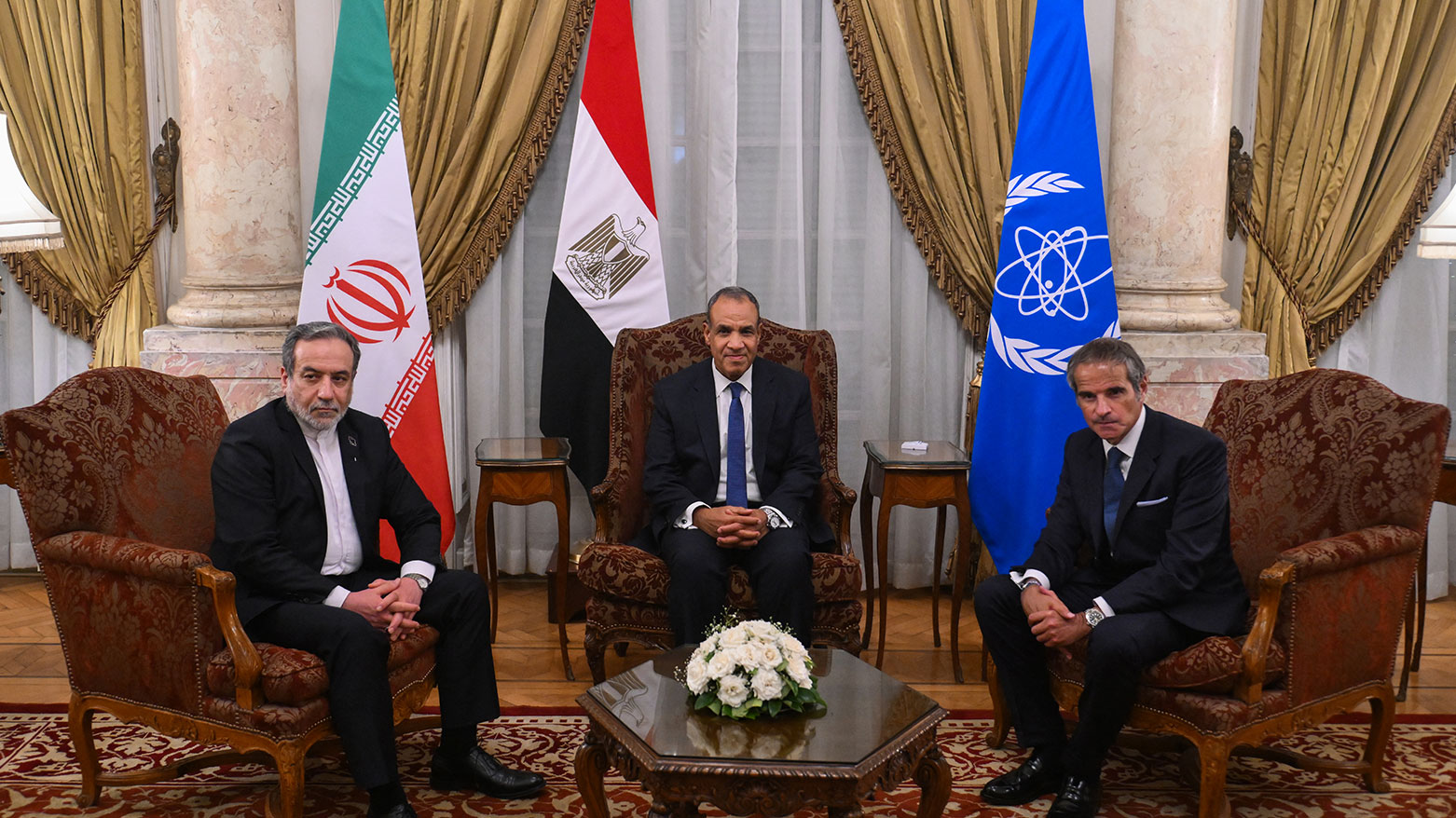Iran, IAEA Reach New Cooperation Framework in Cairo
The agreement was signed in Cairo by Iranian Foreign Minister Abbas Araghchi and IAEA Director-General Rafael Grossi, who described the deal as “an important step in the right direction.”

ERBIL (Kurdistan24) – Iran and the International Atomic Energy Agency (IAEA) signed a new cooperation framework on Tuesday, marking the first breakthrough in relations since Tehran suspended cooperation with the UN nuclear watchdog following the June conflict with Israel.
The agreement was signed in Cairo by Iranian Foreign Minister Abbas Araghchi and IAEA Director-General Rafael Grossi, who described the deal as “an important step in the right direction.”
This development follows Iran’s suspension of cooperation after Israeli and US strikes targeted Iranian nuclear facilities during a 12-day war with Israel. Tehran had accused the IAEA of failing to condemn the attacks and vowed that future cooperation with the agency would take “a new form.”
“Iran and the IAEA have reached an understanding on how to engage under the new circumstances following the illegal attacks by the US and the Zionist regime against our country’s peaceful nuclear facilities,” said Iranian foreign ministry spokesman Esmaeil Baqaei in a televised statement.
Under the suspension, nuclear inspectors required authorization from Iran’s Supreme National Security Council to carry out their work. The new framework, titled Technical Modalities for Implementation of Inspections between the Islamic Republic of Iran and the IAEA, is intended to streamline future inspection processes.
Egyptian Foreign Minister Bard Abdelatty, who hosted the signing ceremony, welcomed the agreement, saying it could mark “a real starting point for a new relationship characterized by greater transparency in dealing with security issues.”
During their Cairo visit, Araghchi and Grossi also met with Egyptian President Abdel Fattah al-Sisi, who praised the deal as “a positive step toward de-escalation.”
Iran maintains that its nuclear program is purely civilian in nature, while Western countries continue to accuse Tehran of pursuing nuclear weapons—an allegation the Iranian government consistently denies.
Iran's nuclear program remains a contentious issue, with international stakeholders closely monitoring its developments. The agreement is seen as a diplomatic effort to enhance trust and cooperation, though skepticism persists about its long-term effectiveness in addressing global security concerns.